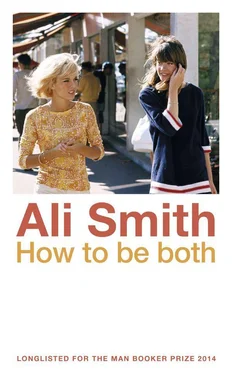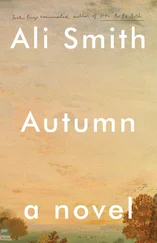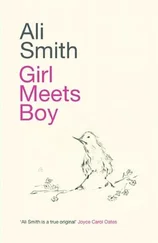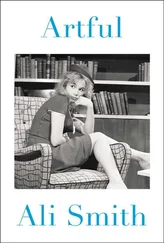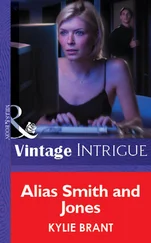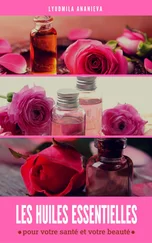I congratulate you, Ercole, I said. It is so bright it’s dark
can’t remember
what came next
but that’s what a proper burnishing of gold does: properly done it will give out both at once darkness and brightness: I taught the pickpocket to burnish: I taught him hair and branches: I taught him rocks and stones and how they hold every colour in the world and how every colour in every picture ever made comes from stone, plant, root, rock and seed: I taught him the body of the son held in the mother’s arms, the last supper, the miracle of the water and wine, the animals standing round the stable and the day going on behind it all, in both the foreground and background of it all, from death to last supper to wedding to birth.
I taught him, too, how things and beings shown to be moving upwards into the air always have about them the most and the best vitality: he was always loyal, sweet pickpocket: I remember now the winter after we finished the frescoes in the palace of not being bored sending him back to Ferara again, and he went without complaint, cause I wanted to know how the work was looking nearly one year dry.
He went on the Wednesday and came back on the Friday straight to the church we were restoring the Madonna in.
He’s only changed one thing since we were there, one thing in the whole room, the pickpocket said. His own face.
Who has? The Falcon? I said.
Borse, of course, the pickpocket said. He’s had his face redone throughout the months, including your months. I asked the man at the door, I know him, old friend of my father’s. He says Borse brought in his cousin Baldass to redo it.
The pickpocket told me the doorman had welcomed him like a son and taken him through to the serving quarters where they’d all done the same and fed him and fussed over him and asked after me –
( they asked after me? )
— yes, he said. And listen, that’s not all. Borse is away a lot these days cause he’s decided to build a mountain — not just move a mountain, since faith can do that, easy, but make a mountain, a whole new one, big as an Alp, in a place there’s not been one before. So there’s a lot of dragging and shifting and piling of rocks at Monte Santo and a lot of stoneworkers being worked to near-death, and sometimes to actual death and when that happens Borse adds the bodies to his mountain.
But Master Francescho, the pickpocket said. This other stuff they told me. Our month room has become quite famous among folk. There’s often a crowd comes to the palace from the town and when they get in there they go and stand in front of your justice scene. They just stand there and look. They never say anything out loud. Borse thinks it’s that they like to come to see the picture of him, you know, giving out justice. But the doorman says the people, when they leave that room, go on their way as pleased as if someone’s put money in their pockets. They come especially, his wife told me while she poured stew into my bowl, to see the face you painted in the blackness, the face there’s only half of, whose eyes — your eyes, Master Francescho — look straight out at them, as if the eyes can actually see them over the top of Borse’s head.
They’re not my eyes, I said.
Uh huh, the pickpocket said.
You didn’t tell them they’re my eyes? I said.
Wouldn’t matter if I had, he said. I know they’re your eyes. I see your eyes every day. But they think what they like. The doorman’s wife told me all the women who come to look go away talking about how the eyes are a woman’s eyes. All the men who come to look go away sure the eyes are a man’s. And you know how you made it only half a face, a face without a mouth? Like there are things that can’t be said? People come for miles to see it and nod their heads at each other about it. And they told me this too, listen to this — that a great many workers are always coming to the palace now, infidel workers and other field workers, workers from our own south and the poor working locals too, and they knock on the door in large numbers, sometimes as many as 20 at a time, to pay their respects , they tell the doorman, to show obeisance to Borse . By which they mean they want to bow before him in person, which Borse lets them do, if he’s there, and he always sees them in the virtue room.
So? I said.
Think , Master Francescho, the pickpocket said. Cause to get to the virtue room you have to pass through the month room, don’t you?
So we’ve turned him into the popular man he wanted us to paint him as? I said.
The pickpocket laughed: he took off his travelling coat: he’d been telling me it all so fast he hadn’t even put his bags down: he did now and sat on the softer of them at my feet and went on with his tale.
The story goes, the pickpocket said, that when the workers passing through the room of the months get anywhere near the far end of that room they veer towards the month of March where they stop below your worker painted in the blue and stand there for as long as they can. Some have even started coming in with their sleeves full of hidden flowers and at a given signal between them all they let their arms fall to their sides and the flowers fall out of their clothes on to the floor beneath him. When they’re made to move on, they go in and they bow to Borse like they’re meant to, it takes about half a minute to, then they’re escorted from the palace back through the room of the months and they strain their heads round on their necks to keep their eyes on the picture for as long as they can the whole length of the room.
And one day 25 or so of them got in there and were standing below him, dust coming off them from the fields, all looking up at him, and they refused to be moved on for nearly an hour, pretended not to understand the language when asked, though in the end when they went they went quite peaceably.
And Borse hasn’t had it altered? I said (and my voice came out like the squeak of a mouse).
Borse has no idea it even happens, the pickpocket said. Nobody’s told him. Nobody cares to, and he’s never seen it with his own eyes, has he? Since he’s always on the other side of the wall squeezed into the chair in the room of the virtues waiting to be bowed to. When he’s not off in Monte Santo, that is, making that new mountain.
For that moment I felt a sorrow for him, Borse the Just, whose vanity reminded me of me –
but what I really felt was frightened that something I’d done or made might have such wild effect.
Your stories are nothing but flattery, I said.
They’re nothing but true, the pickpocket said.
I don’t want to hear any more of your lies, I said.
You sent me to see. I saw. Now I’m telling you, the pickpocket said. I thought you’d like it. I thought you’d be pleased. You’re such a vain cunt, I thought you’d be delighted.
I hit him across the top of the head.
I don’t believe you even went there, I said.
Ow! he said. Right. That’s it. Hit me again and I’m leaving.
I hit him again.
He left.
Good.
I put away all the work things: I went off home to my rooms, to bed: I locked the door against the pickpocket, whose habit it was to sleep at the foot of the bed: he could sleep in the open air tonight
(he came back 3 days later,
sweet pickpocket, who’d die still young, though long after me, of too much drink, tempus edax, forgive me )
as for me, I lay in the bed that night by myself and wondered if Cosmo had heard about my pictures and about all the people coming to look at them.
Cosmo bloody Cosmo.
I am small: I am only newly become Francescho: I am learning to tint parchments and papers and to mix colours for painting the range of different skin and flesh tones in all the different lights: I’m teaching myself from books while my father is working on a house near the edge of the town and one day in an empty room in the half-house I’m leaning out of the brickwork which will become a window and I see crossing the meadow the son of the cobbler, everybody knows who he is cause he’s been taken on at the court: he’s young, he’s to paint the pennants and horsecoats and the armour they use in tournaments, but those who know anything about pictures also know he is a painter of pictures himself so full of twisting and arguing life that they surprise everyone who sees them: as he crosses the meadow it is as if it is revealed to me: he is a being wholly formed of and giving off the colour green: cause everything about him as he walks through the high grasses (he has left the path the people generally use to cross the land and is making his way across a wild-grassed place instead) is green: his head, his shoulders, his clothes are tinted green: above all, his face is the greenest green: it is as if his body gives out a greenness, one I can nearly taste, as if my mouth has been filled with leaves and grass: although I know of course it is the meadow casting its colour on to him, all the same he’s the reason the grasses spread round him for miles are the green they are.
Читать дальше
